SELF Platform Beta launched!
The Beta version of the SELF Platform is already available for testers and early adopters. You can check it right now at beta.selfplatform.eu
Get Involved!
Contribute to the SELF project. See this list of examples of how you can get involved and/or subscribe to one of the mailing lists.
Enviaments recents de blog
- SELF at OpenFest
- SELF in the spotlight on iCommons!
- Reflections on the SELF Platform Launch
- Educational Partnership with SELF
- SELF talk at the Free Software and Open Source Workshop in Varna, Bulgaria
- Creative Commons and Copyleft
- SELF Founding Principles
- Dutch OSS Year book 2006 - 2007
- Interoperability in Bratislava
- Free and Open Source Software Society Malaysia
SELF Advisory Board
The SELF Advisory Board members will play a key role in the development and implementation of the SELF Platform. The new board strengthens links with the target groups who should benefit from the SELF Platform and helps with generating ideas to make the SELF project become self-sustainable. The members of the SELF Advisory Board will participate at a strategic level, bringing together communities and knowledge as well as raising awareness. As the target groups consist of several actors and regions, the Advisory Board mirrors these to create an on-going link with individuals and organisations.
The diverse SELF Advisory Board is comprised of the following professionals:
Susan D’Antoni
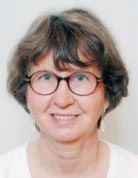 Susan D’Antoni is currently responsible for the Virtual Institute of the UNESCO International Institute for Educational Planning. In the context of the observation function of the Institute, she undertook a study of the policy and planning issues related to the development of the virtual university and e-learning. This work was released in 2003 as a web publication, and followed by a forum series to promote reflection and discussion of some of the issues raised. Two of the forums evolved into Communities of Interest – one on Free and Open Source Software, and another on Open Educational Resources. The latter is an active group of more than 600 members from 98 countries and has benefited from the support of the William and Flora Hewlett Foundation.
Susan D’Antoni is currently responsible for the Virtual Institute of the UNESCO International Institute for Educational Planning. In the context of the observation function of the Institute, she undertook a study of the policy and planning issues related to the development of the virtual university and e-learning. This work was released in 2003 as a web publication, and followed by a forum series to promote reflection and discussion of some of the issues raised. Two of the forums evolved into Communities of Interest – one on Free and Open Source Software, and another on Open Educational Resources. The latter is an active group of more than 600 members from 98 countries and has benefited from the support of the William and Flora Hewlett Foundation.
She began her career heading a project to design and implement a national survey of correspondence education for the Government of Canada in 1997-98, and then joined Ryerson Polytechnical University as Coordinator of the Distance Education Programmes. In 1983, she was seconded to Statistics Canada as Chief of the Projections and Analysis Section of the Education, Culture and Tourism Division. She joined the Association of Universities and Colleges of Canada in 1986 as Director of the newly formed Division of Research, Policy and Planning. In 1991 she moved to the International Association of Universities in Paris.
Elmar Geese
Elmar Geese is Software Entrepreneur since 15 years, and runs a company with 50 employees in Bonn and Berlin. Born and living in Bonn and educated as a musician (at the Musikhochschule Cologne), he is father of five children aged between 14 and 22 years.
The key aspects of his activities are SOA Architectures and Products, JAVA, Free Software and Open Source and Open Standards. He is active in several bodies on national and international levels and founder and CEO of tarent GmbH (Bonn/Berlin). Curently, Mr. Geese is Chairman of the LIVE Linux-Verband (German Linux Business Association), Member of Board OpenForum Europe, ODF Alliance, Open Document Foundation, OASIS SOA and OASIS Office Standardisation Working Groups.
Heather Ford
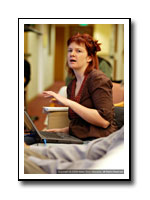 Heather Ford is the Executive Director of iCommons (www.icommons.org), an organisation incubated by Creative Commons with the broad goal of connecting open content, access to knowledge, open access publishing and free culture communities around the world. Heather has a degree in Journalism and Media Studies and postgraduate studies in internet policy, law and management at the University of the Witwatersrand and Stanford University. She has worked in the fields of Internet policy, law and management in South Africa, the United Kingdom and the United States.
Heather Ford is the Executive Director of iCommons (www.icommons.org), an organisation incubated by Creative Commons with the broad goal of connecting open content, access to knowledge, open access publishing and free culture communities around the world. Heather has a degree in Journalism and Media Studies and postgraduate studies in internet policy, law and management at the University of the Witwatersrand and Stanford University. She has worked in the fields of Internet policy, law and management in South Africa, the United Kingdom and the United States.
Masayuki Ida
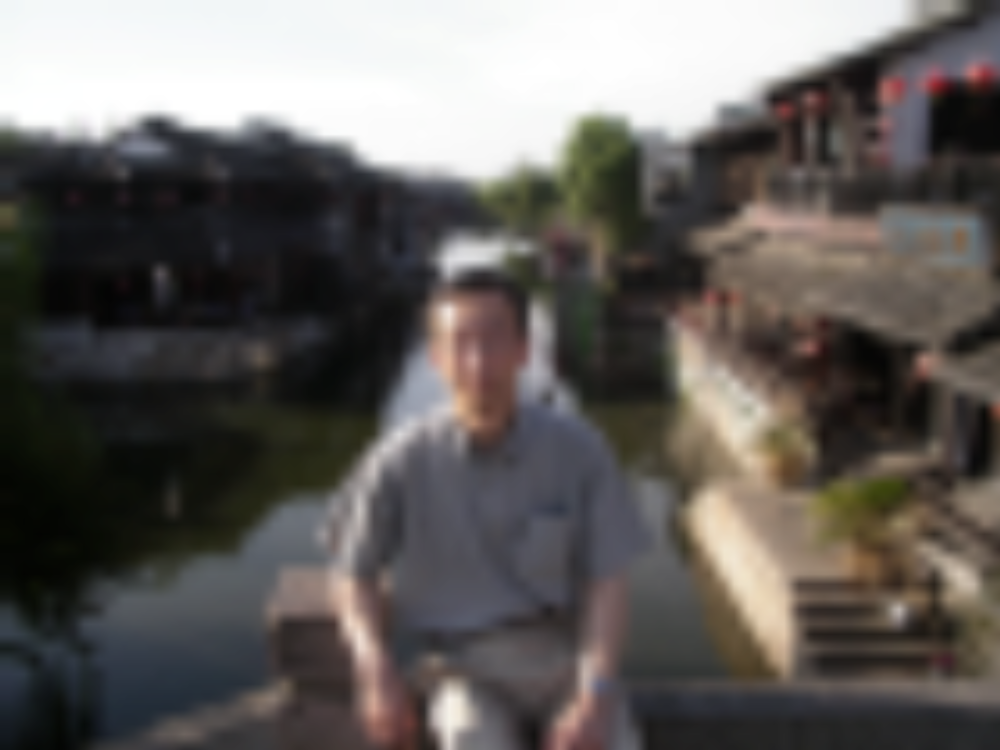 Professor Masayuki Ida is a professor at the Graduate School of International Management (GSIM), Aoyama Gakuin University (AGU). He received his Ph.D. in 1981.
Professor Masayuki Ida is a professor at the Graduate School of International Management (GSIM), Aoyama Gakuin University (AGU). He received his Ph.D. in 1981.
His research is on Global Information Systems, the technological design of them and the relation with organizational activities and individual creativity. He had worked for introducing the Internet to the University and to Japan since 1988.
He has also worked for IT introduction to various Asian countries as the chairman of Asia Open Source Roundtable (2003-2005) and was a member of the IT international policy discussion table inside the japanese cabinet secretariat in 2004. He is a trustee of Center of the International Cooperation for Computerization Japan (CICC).
He has ample knowledge of usage of IT to empower Asian countries. At the same time, he worked for the cutting edges of programming languages, and had been a principal member of the ANSI standard Committee to make the American National Standard of Common Lisp for 1986- 1995. He was a visiting scientist at Artificial Intelligence Lab, Massachusetts Institute of Technology for 1993 and 2002. He organized the FSF Tokyo seminars in the late 80s and was once titled as a VP for Japan at the Free Software Foundation.
Masayuki is regarded as one of the leading experts in Japan and in Asia, on the Internet and IT, and on the impact of IT introduction to Asian countries. He frequently visits several Asian countries, including, for IT human resource development governmental policies using Open Source Software, he teaches intensive courses in Vietnam and other countries.
At his school, he is teaching Internet Business, Information Security, and Web Strategy. Before joining GSIM, he was in charge of the research section of the Information Science Research Center of AGU, where he pioneered (designed and implemented) the three-campus network system, and its Internet connection, starting in 1988 until 1993. He has been an UNIX/ Linux expert since 1978. Dr. Ida has been serving as chair, program committee member or speaker at various international academic and industrial conferences and activities.
Lawrence Liang
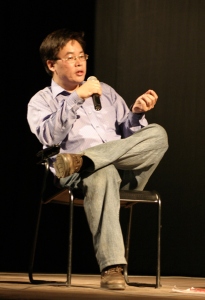 Lawrence Liang is one of the co-founders of Alternative law Forum (ALF), a collective of lawyers working on various aspects of law, legality and power. A graduate of the National Law School, Bangalore, his key areas of interest are law, technology and culture, the politics of copyright and he has been working closely with Sarai, New Delhi on a joint research project Intellectual Property and the Knowledge/Culture Commons. A keen follower of the open source movement in software, Lawrence has been working on ways of translating the open source ideas into the cultural domain. Lawrence has published extensively in various journals and is the author of "Guide to Open Content Licenses" and "The Public is Watching: A Historical Reconstruction of Film Censorship in India".
Lawrence Liang is one of the co-founders of Alternative law Forum (ALF), a collective of lawyers working on various aspects of law, legality and power. A graduate of the National Law School, Bangalore, his key areas of interest are law, technology and culture, the politics of copyright and he has been working closely with Sarai, New Delhi on a joint research project Intellectual Property and the Knowledge/Culture Commons. A keen follower of the open source movement in software, Lawrence has been working on ways of translating the open source ideas into the cultural domain. Lawrence has published extensively in various journals and is the author of "Guide to Open Content Licenses" and "The Public is Watching: A Historical Reconstruction of Film Censorship in India".
Anne Østergaard
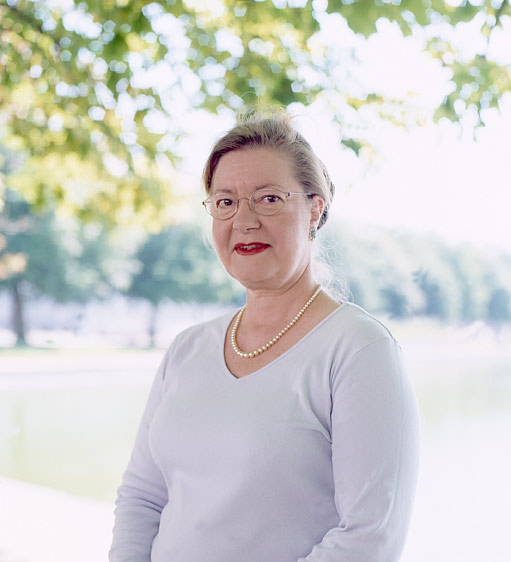 Anne Østergaard holds a Law Degree from The University of Copenhagen. After a decade in government service, international organizations, and private enterprise she is presently an Libre Software entrepreneur. Anne serves as board member on the GNOME Foundation Board of Directors.
Anne Østergaard holds a Law Degree from The University of Copenhagen. After a decade in government service, international organizations, and private enterprise she is presently an Libre Software entrepreneur. Anne serves as board member on the GNOME Foundation Board of Directors.
As a Fellowship member of FSFE, and as member of the Eurolinux Alliance, Anne Østergaard is working against the legalisation of software patents in Europe. Anne Østergaard is also working for free and open standards and file formats, Libre Software in education, in the health care sector, and FLOSS as development aide, privacy on the Internet and more women active in the ICT sector.
Anne Østergaard's interests lies in the area of the long-term strategic issues of Free Software in the social, legal, research, and economic area of our global society.- Information Communication Technologies are important to the individual citizen's life and personal possibilities in the information society in order to obtain, and secure democratic freedom rights.
Susy Struble
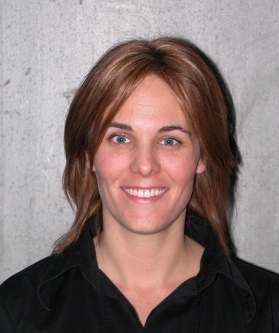 Ms. Struble works in Sun Microsystems office for government strategy with the goal of promoting social and economic progress through interoperable IT systems. Technology standardization is a key tool of her job, as it forms the intersection of competitive strategy, economic growth, law, industry requirements, innovation, public policy and - increasingly - a notion of the common good. In her role at Sun, she consults with other IT companies, Sun customers and governments on technology standards and policies that best serve economic and social needs. She also helps to guide Sun's decision making processes regarding technology standardization.
Ms. Struble works in Sun Microsystems office for government strategy with the goal of promoting social and economic progress through interoperable IT systems. Technology standardization is a key tool of her job, as it forms the intersection of competitive strategy, economic growth, law, industry requirements, innovation, public policy and - increasingly - a notion of the common good. In her role at Sun, she consults with other IT companies, Sun customers and governments on technology standards and policies that best serve economic and social needs. She also helps to guide Sun's decision making processes regarding technology standardization.
Ms. Struble received a B.A. in Government and Economics from Dartmouth College in 1993, with an emphasis on development policies. She was granted a Lombard Public Service Fellowship from the Dickey Endowment for International Understanding and spent several months running a socioeconomic research project in Cairo, Egypt.


